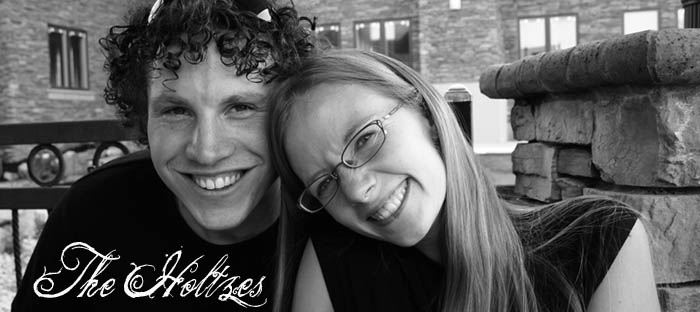When I went to Nairobi in 2006, I got to know a woman named Joyce, who lived with her family in the Kibera slum. One day she invited me to visit her. The following is a reflection of my afternoon visiting her. I hope that I will get to see her this summer and that Clarissa, too, will have the opportunity to meet her.
Myself, Jeremy (my roommate at the time) and two of Dawn and Ryan’s boys, Caleb (5) and Levi (3), got dropped off like the spoiled white Americans we are and met up with Joyce’ brother her husband and her two boys. We made our way through a makeshift bus station that was clogged with fifteen passenger vans stuffed with too many sweating bodies, and black diesel smoke. We made our way down a dirt side street lined with little dukas that sold American hats and taped music, that they would blare.
We came out of this dark cramped ally into an open area with dukas on both sides, divided by a railroad track with steel ties, presumably to protect against termites. The shops amid the squalor were bright splashes of color; remarkably clean and well kept clothing hung for sale in a rickety duka that was made of crooked sticks and tarps hung where corrugated steel roof could not be found. We paced the ties down what feels like a kilometer under the African sun to a look out spot where as far as we can see in the distance are the rusted steel roofs of Kibera. Dirty, and stained red brown, like the African earth, the slum stretched out into the horizon.
Just below our lookout, amid a pile of garbage, a teenage girl stared, the whites of her eyes standing out against her dark skin. Mutely, she watched as we snap photos of a novelty, and she lives in that hole.
We turned and walked back the way we came, going the long way around to Joyce’s house so that we might see more of Kibera. We made our way down garbage-paved streets, past little barber shops, dukas selling cokes and phone cards, people staring with large eyes. We passed churches with loud sound systems pumping their Swahili sermons into the dusty lanes. The walls of the shacks alternate between mud slapped around an exposed structure of gnarled sticks, and steel with faded advertisements for cigarettes.
We arrived at a little gate large enough for Caleb to walk through unhindered. We passed between mud houses into a little open area with 4 or 5 doors facing each other, wet laundry strung across the gap.
We entered the house, built on a cement slab, assembled of mud and sticks and topped with a rusty steel roof that leaks in the rain. In front of us and to the left, once my eyes adjusted to the dark interior, hung two light blue sheets hanging from the ceiling and reaching to the floor. To the left was Joyce’s bedroom; ahead was the boys’ room, which was just a mattress and a window in the wall. A couch and two chairs were set up around a coffee table, the couches were really just benches covered in bright green knitted blankets with some cushions underneath. Inside it was cooler, but I could still feel the perspiration running down my back. Joyce met us with a big smile and a strong handshake. She gave us sweet rolls that she had made in our kitchen the day before along with chi. We sat and talked the boys went out to play with a warning from Joyce to stay close by. We talked of Kibera while Joyce and her niece labored in the corner they called a kitchen. Lunch came as beans, Ugali, a stew with mystery meat, Sukuma wikki, and chapattis. First taste of the pasty grits like Ugali, not bad, a bit bland but you could live off it…whether I could thrive on it…probably not.
I have been thinking about the passage in Luke that talks about those who have been given much being required much. I have seen a bit of what that means. People born in poverty don’t ask to suffer, they don’t ask to go hungry. They don’t go looking for difficulty; it all comes to them. He wants me to ask to suffer, to ask to go hungry, to look for difficult places to live. He calls me to ask, to as Christ did, volunteer for the pain. To know comfort, to know ease, and to give it up for His Glory. I am frustrated and tired and just want to tell Him to go away, but as the disciples said, “to whom shall I go, He has the words of Life.”






No comments:
Post a Comment